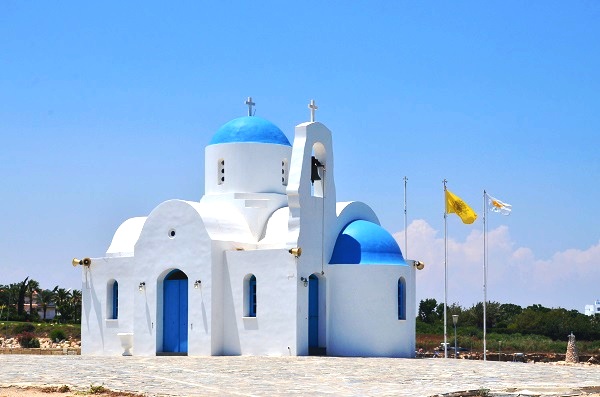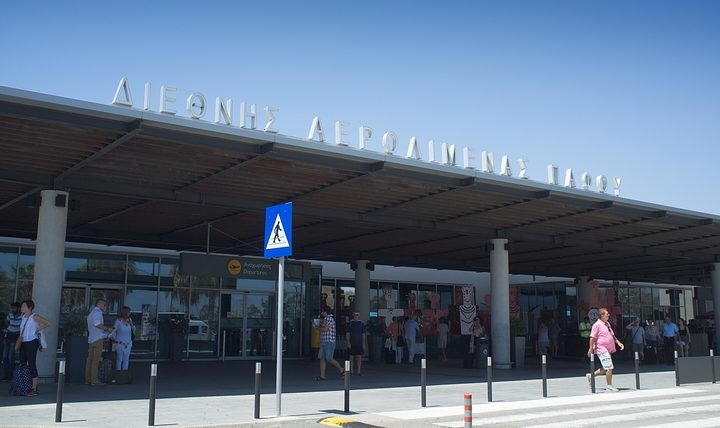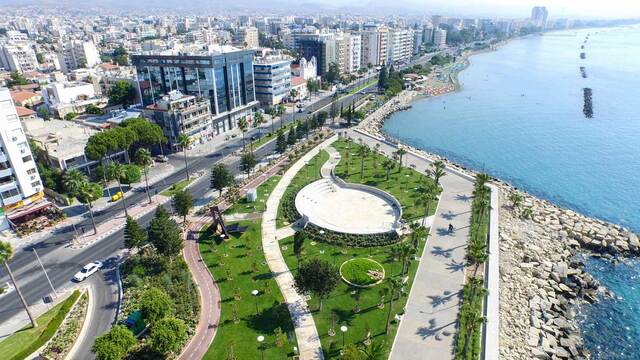Who would have thought that religion would become a source of tourism to the extent that it has developed?
Russian, Ukrainian, Egyptian (Copts) and other Orthodox countries have shown an increased interest in Cyprus based partly on religion.
We are now experiencing increased interest mainly by Russians and Russian-speaking tourists from Eastern Europe.
It seems that some of these nations are more religious than we are, in the sense that they treat the church with much more respect than we do.
We use our churches, amongst other things, for political speeches, to display national flags and people chatting loudly during a service with the hymns just being “background music”.
It is partly the fault of our ceremony held in ancient Greek, where very few people understand what it is all about, they get bored and start chatting with the person next to them.
I often get many inquiries regarding religious places to visit, especially out of the way chapels usually placed in a beautiful environment, on hills or even right on the beach.
These isolated chapels are now in fashion ranging from weddings to christenings, whereas caterers can provide all necessary food, tents, mobile WCs.
Bear in mind that all Christian denominations can use a local church (subject to the local Bishop’s approval, of course).
I thought of seeking the Archbishop’s help on the matter and was introduced to the Bishop of Mesaoria, an enthusiastic computer literate person who never ceases to surprise me.
Not only because he maintains the church website (www.churchofcyprus.org.cy) in four languages, but any time small groups of visitors want to visit any chapel, he will arrange a tour through the local church representative to show them around and explain the history.
And this, at no cost, but a small contribution (say €20) in the church box will be appreciated.
There are so many stories, a history behind each church and little did I know that Tripiotis church (a Nicosia chapel – translated “the church with a hole”) has its history.
Nicosia, at some time, was flooded, and the people ran to the church seeking God’s help. God appeared and struck with his cane the ground creating a big hole where all the flood water was drawn, and Nicosia dried out and was saved.
This was a lovely story, and the hole is still there for everyone to see.
There are no set excursions for such religious visits, but individual groups renting a car can be found everywhere.
That is another plus for real estate promotion.
The Bishop said there are approximately 10,000 visits to out of the way chapels every year, in addition to churches in towns.
The more popular Monasteries such as Kykko, Trooditissa, Machairas and others can attract more than 5,000 foreign visitors within weeks.
In one project we manage at Pissouri, we built a small chapel fully decorated by a resident, a British artist with beautiful murals on the ceiling, named St. Demitrios.
The bell was gifted to the church by a Russian resident and some icons by the locals.
Alas, the Paphos Bishopric does not allow any religious services or ceremonies there as a church must belong to the Bishopric and not to individuals.
If not for Cypriots, weddings, christenings, and other events can take place there.
This is a major attraction to the project, and we have already had two engagements in it and two pending christenings.
We are now hoping to organise an Easter celebration in the churchyard and having the local priest (he is still thinking about it) plus a choir from Limassol.
I cannot say that we sold more properties because of this chapel, but it is something that people have come to like.
Mind you, choosing a home close to a church can be a problem due to nuisance and noise (we Cypriots tend to have loudspeakers so that the hymns are heard from far away) and never-ending fireworks that scare people during Easter.
Russian speakers
On another note, we tend to relate all Russian speakers as being Russians, but had the recent troubles in Ukraine and Crimea not happened, Ukrainians would have been the majority of Russian speakers in terms of home purchases and investment.
One can argue that the troubles will encourage those wealthy Ukrainians to seek permanent residency in Cyprus; although welcomed, this is not a sustainable source of real estate demand.
Everything emanates from tourists, which is followed by real estate investments.
It is beyond me how Crete, with its 3 mln-plus tourists, has 1 mln Germans and Cyprus only 100,000.
A recent interview by a German tour operator said that Cyprus has too many Russians and “our clients do not practically like this”.
What is the problem since they are the least troublesome tourists and the biggest spenders?
Keeping on the subject of religion, should we build a couple of chapels for the German tourists?
We also seem to have ignored the UK-based tour operators.
The Cyprus government has undertaken a charm offensive in the hope of renewing interest in weddings in chapels, as well as christenings.
During the initial years of the Cyprus tourism boom (the 1980s), the country was very much in demand by the northern European countries, especially Sweden.
We set up a real estate office in Stockholm, and we had employed two Swedish sales staff in Cyprus to cope.
Now, they are almost nowhere to be found (only at Ayia Napa).
Since circumstances are challenging and now that Egypt and other Mediterranean Arab countries have lost a significant share of tourists, it is time to investigate the situation and ascertain the route towards recovery.
One of the reasons for Cyprus’ failure is the restriction on charter flights, and proof of this, Crete with no direct flights still attracts the same number of tourists as Cyprus.










